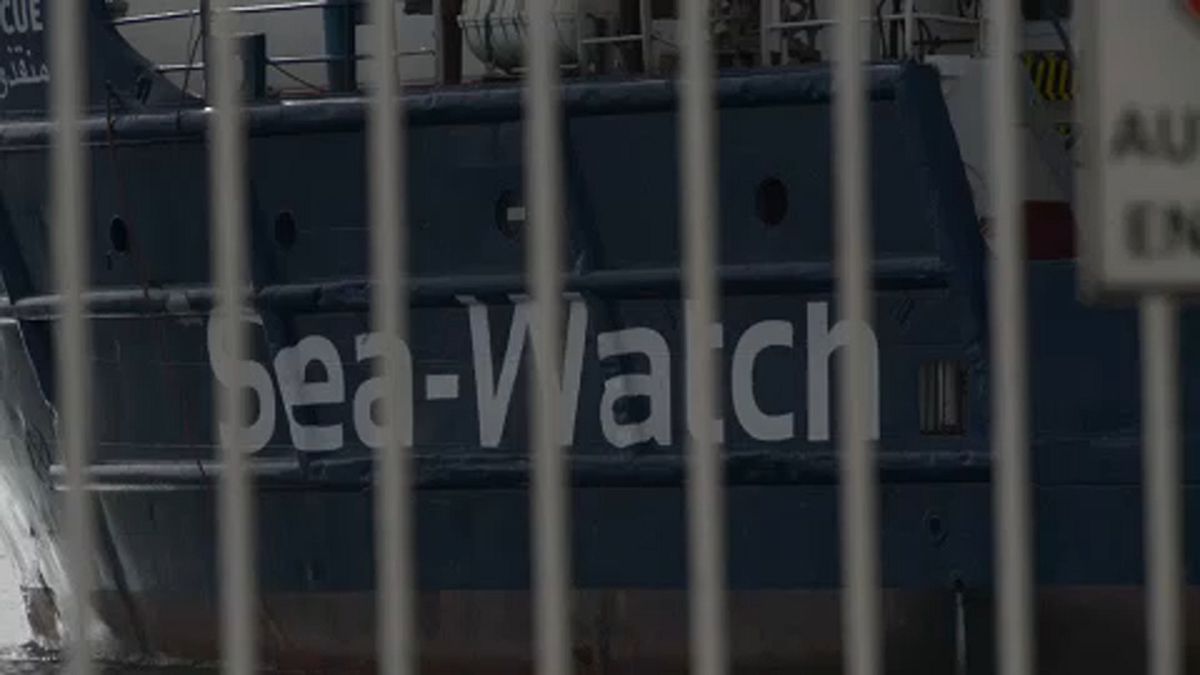"We will challenge the Maltese authorities with legal steps for sure... because people are dying right now"
It's like stopping an ambulance from reaching a road crash. That is the comparison being made by German NGO 'Sea Watch' - as it lashes out at Malta for stopping its air and sea migrant rescue operations.
The moves appearing to be part of efforts by both Malta and neighbouring Italy to make it almost impossible for organisations to use them as bases to help people adrift off the nearby Libyan coast.
Sea Watch says it won't give in.
"We will challenge the Maltese authorities with legal steps for sure and we will see which other possibilities we will find to come back to operations as soon as possible – because people are dying right now," Reuben Neugebauer, from Sea Watch, told Euronews.
"Especially for the aircraft, you cannot say an aircraft is colluding with smugglers. An aircraft is just searching for people in distress and this is clear search and rescue only. It’s as if you were to stop an ambulance from going to a road traffic accident. If you would do this to stop an ambulance, you would end up in court."
In a statement, Maltese authorities told Euronews that it's not requesting any surveillance missions by third parties in its search and rescue region.
So, as the EU works to resolve its migration feuds, where do things go from here? Euronews spoke to Eugenio Cusumano, a lecturer in International Relations, at the University of Leiden, in the Netherlands.
Euronews: "What is the role for NGOs in the rescuing at sea, at this point?"
Eugenio Cusumano: "NGOs are still needed because at the moment there is no capable European presence offshore of Libya and the Libyan coast guard that has been trained by Italy and the European union, is not yet well equipped to conduct the entirety of search and rescue operations on their own.
"A country that does not have a Maritime Rescue Coordination Centre and it is in such a state of fragility, cannot be entirely rely upon for conducting search and rescue operations."
Euronews: "Why did you say that the decision by Spain, of receiving the boat, does more harm than actually helps the situation?"
**Eugenio Cusumano: **"The Spanish ports are just too far away to provide a reliable place of disembarkation in a systematic manner. Of course, that is a long journey, that entails a lot of problems from an humanitarian as well as a logistical standpoint and obliges NGOs to actually be faraway from the area where most of the distress situations occurs for over a week.
"So, ideally it would be better from an humanitarian and logistical standpoint if migrants were disembarked in Italy and then relocated to other European Union countries."
